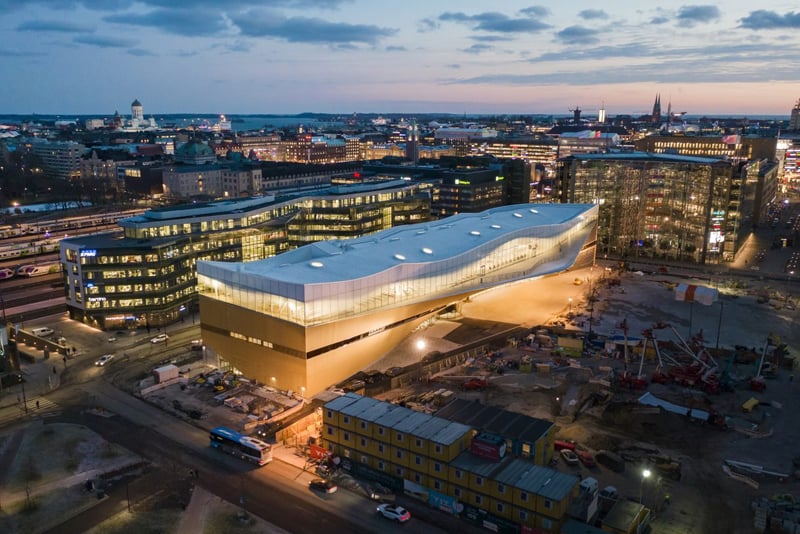
BEDA’s 1st International Design Policy Conference on 5th December 2019 in Helsinki
Design plays a central role in a competitive European economy. Nevertheless, its potential is not yet fully exploited. How can design, as a strategic tool and a unique, user-centred approach to addressing complex global challenges, be more fully embedded in policy and policy-making at the European level?EU policy influencers and decision-makers gather in Helsinki at BEDA’s first International design policy conference to explore next generation design policy for Europe.
This week in Helsinki, on Thursday 5th December, as a part of the official side programme of Finland’s Presidency of the European Union, the Bureau of European Design Associations, (BEDA), is bringing together an international group of one hundred invited experts from the fields of business, environment, government, policy-making, technology and design for its first international design policy conference, ‘Successful Europe. How can design serve?’
How can design serve?
At the very point of the emergence of the new European Commission and with the central question of, ‘How can design serve?’, experts and policy-makers will explore and offer new ways for design to positively and creatively influence decision-makers seeking solutions to the complex challenges of climate change & circular economy; digitalisation & artificial intelligence and shared European values.
BEDA President Päivi Tahkokallio, says, ”The future success of Europe depends on how we are able to find solutions to complex global challenges. Design as a knowledge-intensive field of expertise has an important role to play in sustainable innovation. However, much more can be done in addressing systemic challenges”.Design as an engine for a sustainable European economy
The importance of the creative industries is increasing in Europe. The latest survey conducted by EUIPO, (the European Union Intellectual Property Organisation,) shows that 45% of Europe’s GDP is produced by fields related to intangible value creation. Design alone creates 16%. Furthermore, employing almost 63 million people and accounting for 29% of Europe’s work force, the value of Europe’s IPR-intensive industries amounts to some €6,6 billion.
Expanding the scope of design
The evidence of the past decade shows that design thinking and design can create considerable competitive advantage for SME’s leading to sustainable growth and jobs in Europe, which in turn, benefits the citizens of Europe. But the scope for design is wider than the economy alone. More can be achieved through leveraging design’s contribution when addressing global challenges.
Päivi Tahkokallio says, ”BEDA believes that design can serve as it offers a powerful integrating approach. Our conference will bring the role of design as a key strategy for policy making at the European level to centre stage. We welcome all our experts to Helsinki to explore with them, next generation design policy for Europe”.
Keynote speakers will include Erkki Liikanen, Chair of Trustees of the IFRS Foundation, Governor of the Bank of Finland (2004-2018) and EU Commissioner (1995-2004); European Commission, Head of Unit, Tourism, Emerging & Creative Industries, Anna Athanasopoulou Directorate-General for Internal Market, Industry Entrepreneurship & SMEs and the City of Helsinki’s own Executive Director of Culture and Lesiure, Tommi Laitio.
The day will be opened with a welcome from Hanna Kosonen, Finland’s Minister of Science and Culture.
Further information
Please see the full programme here.
The Conference App is now available for all handheld devices. Please download the Eventos Mobile App at get.eventos.fi entering pin code 6627 when asked to do so.
The first BEDA international design policy conference is organised together with BEDA Member Ornamo Art and Design Finland.
The conference is generously supported by the Finnish Ministry of Science and Culture along with the City of Helsinki and the Arts Promotion Centre of Finland.
